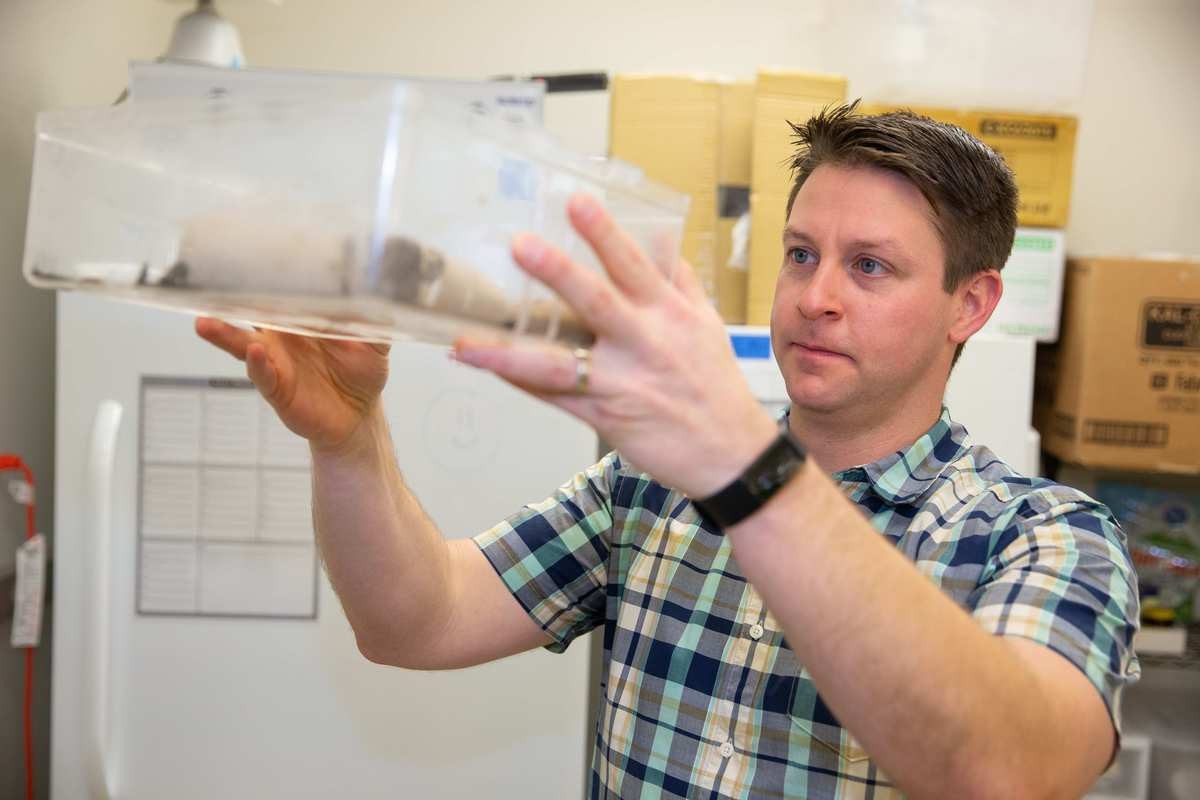
Deseret News: What traits do pregnant women and roaches have in common?
UC study uses insects to examine how pregnancy affects body's immune system
The Deseret News highlighted a study by biologists at the University of Cincinnati that looked at how the immune system of a live-bearing insect changes to prepare for giving birth.
UC College of Arts and Sciences Professor Joshua Benoit led the study that sequenced the genome of the Pacific beetle-mimic cockroach. Unlike many cockroaches, this insect does not lay eggs but gives birth to more developed babies as a survival strategy.
“The class of predators really narrows when you give birth to live young,” Benoit said.
But live births require a far bigger parental commitment.
“It’s a pretty big investment. They can produce 10 juveniles per reproductive cycle compared to 70 to 150 eggs for other roaches,” Benoit said. “So their strategy is to produce fewer higher-quality individuals compared to more individuals with less investment.”
UC's study found that pregnant roaches undergo profound physical and physiological changes to accommodate their brood.
The findings could help shed light on fibromyalgia and other autoimmune disorders in people, Benoit said.
The study was published in the journal iScience.
Featured image at top: UC Professor Joshua Benoit holds a container of beetle-mimic cockroaches in his biology lab. Photo/Andrew Higley/UC Marketing + Brand
Related Stories
Wired: Is psychedelic therapy bubble about to burst?
September 9, 2022
UC postdoctoral researcher Nese Devenot talks to Wired magazine about challenges facing psychedelic therapies.
Psychedelic research renaissance
August 16, 2022
Psychedelics such as LSD, psilocybin and MDMA are gaining increasing attention in scientific and medical circles because of the potential they hold for treating anxiety disorders and emotional trauma. UC's Nese Devenot explains why psychedelics are seeing a research renaissance.
NatGeo: UC discoveries featured in new series on ancient Maya
March 25, 2024
UC's research on the ancient Maya in Tikal is featured in a new National Geographic series called "The Rise and Fall of the Maya."
